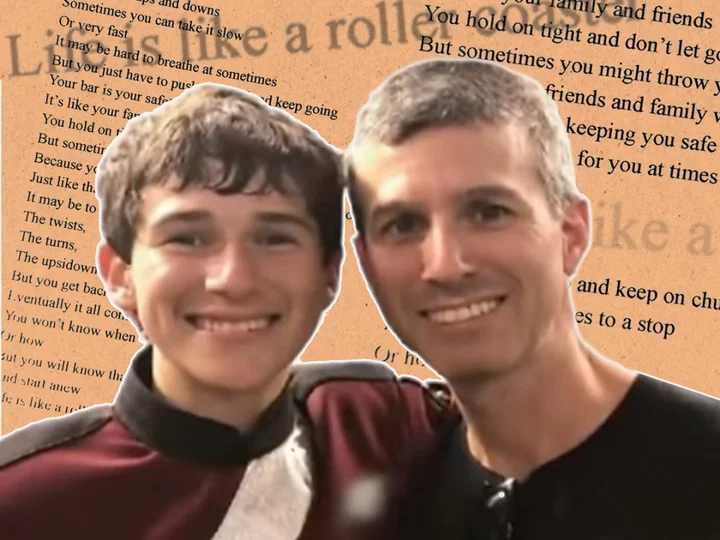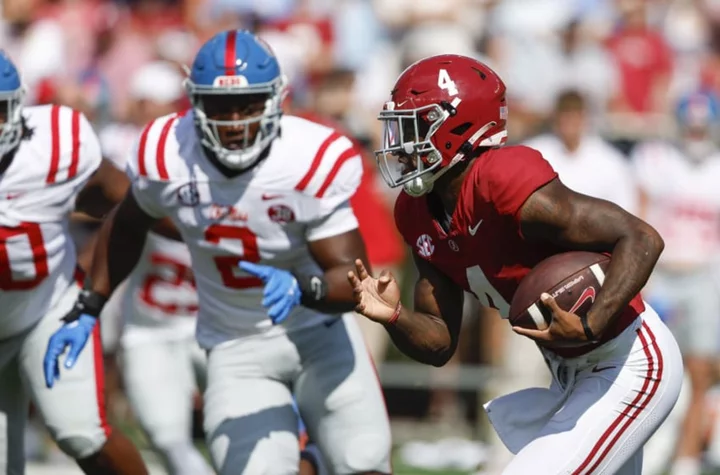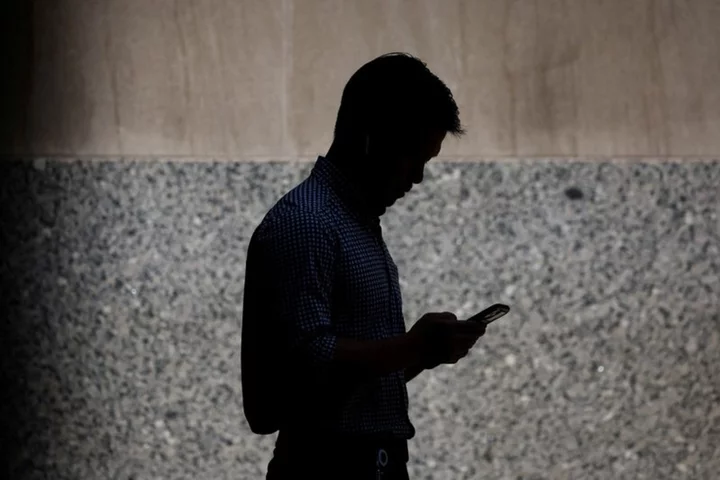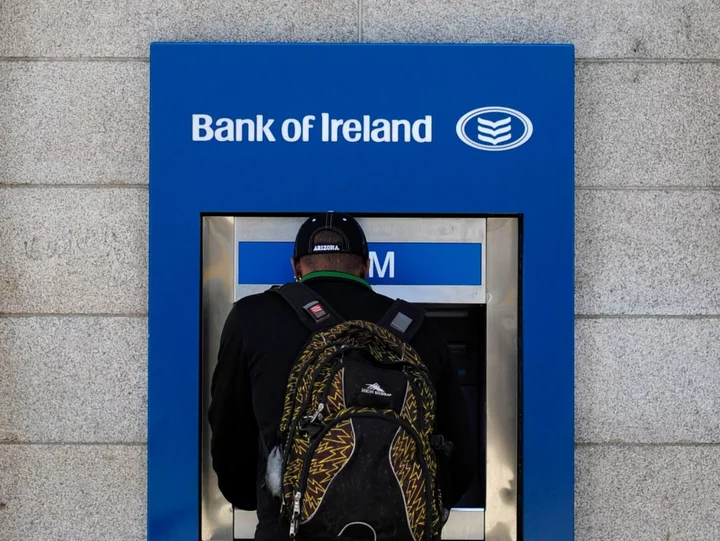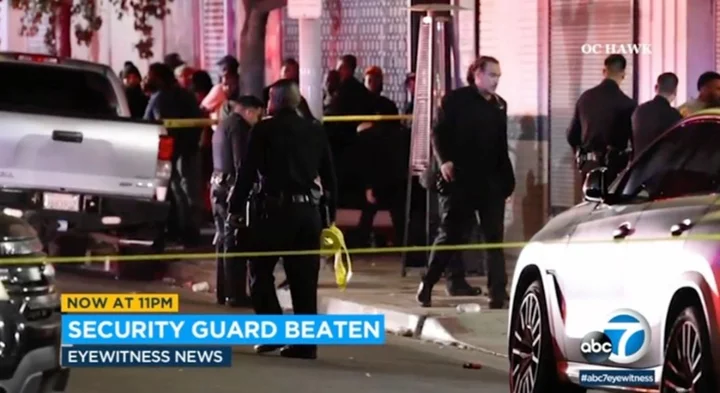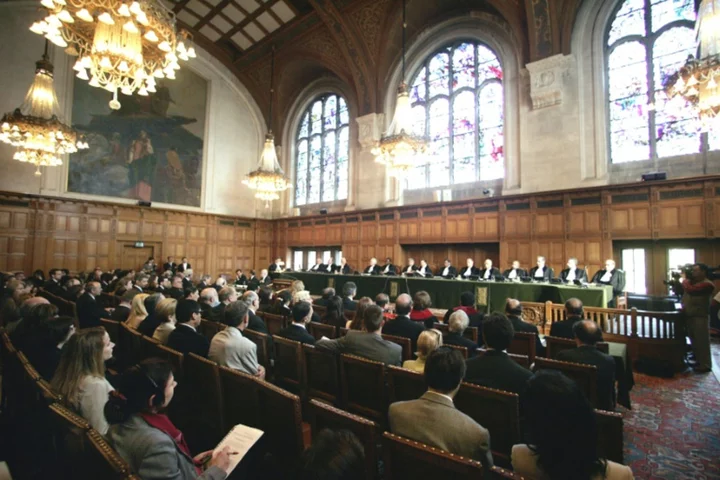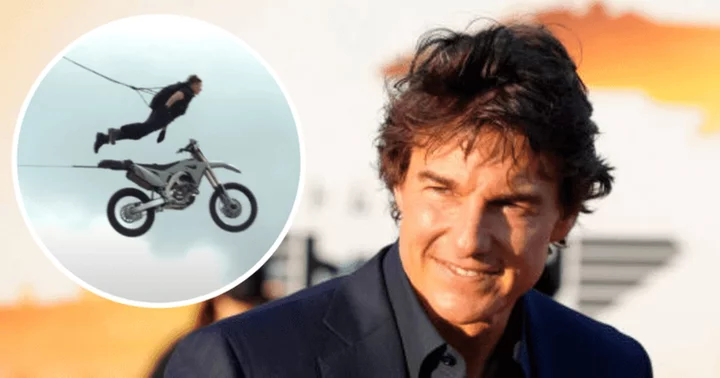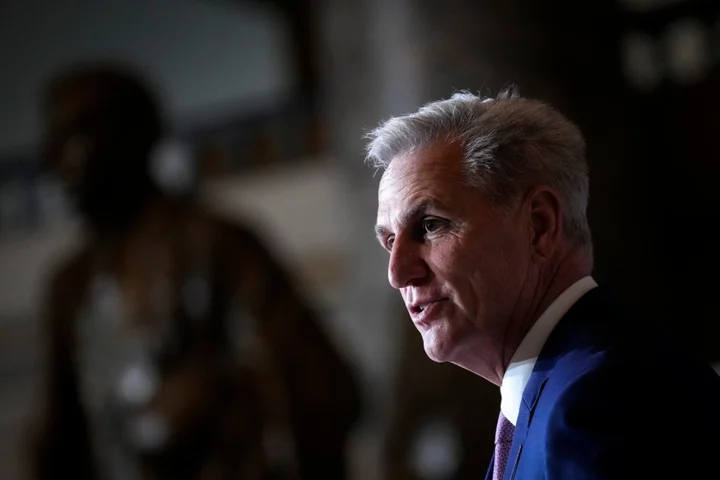As he prepared to write a eulogy for his 14-year-old son Alex’s funeral, Max Schachter found strength in a crumpled-up piece of paper the teen had discarded in the trash. “Life is like a roller coaster/ It has some ups and downs/ Sometimes you can take it slow or very fast/ It may be hard to breathe at times/ But you have to push yourself and keep going,” Alex wrote in his poem Life is Like a Rollercoaster. The powerful words became a precious keepsake of Alex’s wisdom beyond his years after he was fatally shot during class at Marjorie Stoneman Douglas High School in Parkland, Florida, on 14 February 2018. For years, the poem was a recurrent source of solace for the Schachter family; it was read by Mr Schachter as he addressed members of government early on in the tragedy, it helped the Schachters navigate never-ending waves of grief as time passed and it was also read last year by Alex’s older brother Ryan during his victim impact statement as a jury prepared to sentence Alex’s killer. Five years after the shooting that claimed 17 lives, staff hired by the school district found the final draft that Alex had turned in to his English teacher. They also found the lunchbox his parents packed for him every day and the binder with his schoolwork, but his backpack was placed inside a box labelled “biohazard” that Mr Schachter hasn’t opened yet. “[They] said, ‘I want to just tell you something ... there was a bullet that went through the poem, and I was just trying to process that this is just really painful,” Mr Schachter recounted to The Independent. “They had his belongings ... and then they gave it to me in a box with tape all around it and I asked, ‘What’s with all of this?’ They said it was because either it had a bullet shot through or there was blood on it. I took it home with every intention of opening it, but it’s hard.” “Looking at this journey that I’m on along with the other sixteen families – it’s just brutal. It never ends.” In the aftermath of the school shooting, the hard decisions have continued to pour in. Families of the Parkland shooting victims have been given the option to tour the preserved crime scene where Nicholas Cruz, a former student at the school, ambushed classrooms and indiscriminately shot at more than 34 people. The building was preserved as evidence for Cruz’s penalty trial last year. After the prosecution rested its case in August 2022, jurors retraced the path of violence. The state hoped that seeing the crime scene in person would convince them that Cruz deserved the death penalty, but jurors couldn’t unanimously agree. Cruz was ultimately sentenced to life in prison in November. “I wanted to walk through that building, [for it] to help me crystallise what had happened,” Mr Schachter said. “I wanted to understand what happened to Alex and I wanted to sit in that chair. I wanted to take that chair home with me, that was the chair that Alex took his last breath in.” Inside Alex’s classroom, Mr Schachter found what he described as a “war zone” – the harrowing evidence of the horrors that his son and his classmates endured. And with everything surrounding the carnage, the details continue to be as horrific all these years later as they were on that tragic day. “As I got there, I realised how he killed everyone and was so brutal and what he did to Alex,” Mr Schachter told The Independent. “There was blood all over Alex’s seat and all over the floor and his paperwork had blood on it.” There were also subtle hints of the sudden way in which hundreds of lives were changed that Valentine’s Day. The scattered textbooks, boards with lesson plans that were never taught, Valentine’s cards that were never delivered to their recipients and deflated balloons have become a painful reminder of the passage of time. Mr Schachter wasn’t trying to find closure when he walked inside the building where his son was murdered. But he was hoping to feel closer to Alex. However, the decision to open a box that may contain more fuel for nightmares is one he is not ready to make just yet. “I’m understanding that there might be more harm than good. There might be more negatives than positives from opening that box,” he said. “I haven’t made a decision on the box, but I am cognisant of the fact that it’s going to be very painful and I’m not sure if I’m ready for that.” Mr Schachter has turned his pain into purpose through his nonprofit Safe Schools for Alex, which assists parents, students and school districts with resources to make schools safer. It provides training in threat assessments and school safety best practices. The charity is currently fundraising money in honour of what would have been Alex’s 20th birthday on 9 July. Mr Schachter was also part of the Marjory Stoneman Douglas High School Public Safety Commission, which investigated failures before and after the shooting and then presented recommendations. “I travel around the country and I speak with law enforcement organisations, with school districts about what happened in Parkland,” Mr Schachter said. “I talk about the failures. I talk about what Florida’s done post-Parkland.” Under the Trump administration, a bill named after Alex and his friend Luke Hoyer, who also died in the Parkland shooting, led to the creation of SchoolSafety.gov, a federal website that compiles tools and actionable recommendations to create safer environments in K-12 schools, including resources for bullying as well as active shooting drills. The website was incorporated into President Biden’s Bipartisan Safer Communities Act last year. “The reason I do what I do is because there’s so much complacency. [No one] thinks it’s going to happen to them, so that’s why I go around the country and I tell Alex’s story and I show pictures and videos of him playing the trombone and the baritone because I never thought it would happen in Parkland,” Mr Schachter told The Independent. “I moved to Parkland because it was ranked the safest city in Florida right before the shooting, but it can happen everywhere.” The victims wounded in the Parkland shooting and their loved ones will also be able to visit the 1200 building at Marjory Stoneman Douglas High School, now that it is no longer needed as evidence in the trials of the convicted killer and a deputy who was acquitted last month of failing to stop him. The school district plans to demolish the three-story building, likely replacing it with a memorial. Read More Seven murders by cyanide-laced Tylenol will never be solved. But the prime suspect’s death brings justice The Zodiac Killer claimed responsibility for 37 murders. But what if he never existed at all?
As he prepared to write a eulogy for his 14-year-old son Alex’s funeral, Max Schachter found strength in a crumpled-up piece of paper the teen had discarded in the trash.
“Life is like a roller coaster/ It has some ups and downs/ Sometimes you can take it slow or very fast/ It may be hard to breathe at times/ But you have to push yourself and keep going,” Alex wrote in his poem Life is Like a Rollercoaster.
The powerful words became a precious keepsake of Alex’s wisdom beyond his years after he was fatally shot during class at Marjorie Stoneman Douglas High School in Parkland, Florida, on 14 February 2018. For years, the poem was a recurrent source of solace for the Schachter family; it was read by Mr Schachter as he addressed members of government early on in the tragedy, it helped the Schachters navigate never-ending waves of grief as time passed and it was also read last year by Alex’s older brother Ryan during his victim impact statement as a jury prepared to sentence Alex’s killer.
Five years after the shooting that claimed 17 lives, staff hired by the school district found the final draft that Alex had turned in to his English teacher. They also found the lunchbox his parents packed for him every day and the binder with his schoolwork, but his backpack was placed inside a box labelled “biohazard” that Mr Schachter hasn’t opened yet.
“[They] said, ‘I want to just tell you something ... there was a bullet that went through the poem, and I was just trying to process that this is just really painful,” Mr Schachter recounted to The Independent. “They had his belongings ... and then they gave it to me in a box with tape all around it and I asked, ‘What’s with all of this?’ They said it was because either it had a bullet shot through or there was blood on it. I took it home with every intention of opening it, but it’s hard.”
“Looking at this journey that I’m on along with the other sixteen families – it’s just brutal. It never ends.”
In the aftermath of the school shooting, the hard decisions have continued to pour in. Families of the Parkland shooting victims have been given the option to tour the preserved crime scene where Nicholas Cruz, a former student at the school, ambushed classrooms and indiscriminately shot at more than 34 people.
The building was preserved as evidence for Cruz’s penalty trial last year.
After the prosecution rested its case in August 2022, jurors retraced the path of violence. The state hoped that seeing the crime scene in person would convince them that Cruz deserved the death penalty, but jurors couldn’t unanimously agree.
Cruz was ultimately sentenced to life in prison in November.
“I wanted to walk through that building, [for it] to help me crystallise what had happened,” Mr Schachter said. “I wanted to understand what happened to Alex and I wanted to sit in that chair. I wanted to take that chair home with me, that was the chair that Alex took his last breath in.”
Inside Alex’s classroom, Mr Schachter found what he described as a “war zone” – the harrowing evidence of the horrors that his son and his classmates endured.
And with everything surrounding the carnage, the details continue to be as horrific all these years later as they were on that tragic day.
“As I got there, I realised how he killed everyone and was so brutal and what he did to Alex,” Mr Schachter told The Independent. “There was blood all over Alex’s seat and all over the floor and his paperwork had blood on it.”
There were also subtle hints of the sudden way in which hundreds of lives were changed that Valentine’s Day. The scattered textbooks, boards with lesson plans that were never taught, Valentine’s cards that were never delivered to their recipients and deflated balloons have become a painful reminder of the passage of time.
Mr Schachter wasn’t trying to find closure when he walked inside the building where his son was murdered. But he was hoping to feel closer to Alex.
However, the decision to open a box that may contain more fuel for nightmares is one he is not ready to make just yet.
“I’m understanding that there might be more harm than good. There might be more negatives than positives from opening that box,” he said. “I haven’t made a decision on the box, but I am cognisant of the fact that it’s going to be very painful and I’m not sure if I’m ready for that.”
Mr Schachter has turned his pain into purpose through his nonprofit Safe Schools for Alex, which assists parents, students and school districts with resources to make schools safer. It provides training in threat assessments and school safety best practices.
The charity is currently fundraising money in honour of what would have been Alex’s 20th birthday on 9 July.
Mr Schachter was also part of the Marjory Stoneman Douglas High School Public Safety Commission, which investigated failures before and after the shooting and then presented recommendations.
“I travel around the country and I speak with law enforcement organisations, with school districts about what happened in Parkland,” Mr Schachter said. “I talk about the failures. I talk about what Florida’s done post-Parkland.”
Under the Trump administration, a bill named after Alex and his friend Luke Hoyer, who also died in the Parkland shooting, led to the creation of SchoolSafety.gov, a federal website that compiles tools and actionable recommendations to create safer environments in K-12 schools, including resources for bullying as well as active shooting drills.
The website was incorporated into President Biden’s Bipartisan Safer Communities Act last year.
“The reason I do what I do is because there’s so much complacency. [No one] thinks it’s going to happen to them, so that’s why I go around the country and I tell Alex’s story and I show pictures and videos of him playing the trombone and the baritone because I never thought it would happen in Parkland,” Mr Schachter told The Independent.
“I moved to Parkland because it was ranked the safest city in Florida right before the shooting, but it can happen everywhere.”
The victims wounded in the Parkland shooting and their loved ones will also be able to visit the 1200 building at Marjory Stoneman Douglas High School, now that it is no longer needed as evidence in the trials of the convicted killer and a deputy who was acquitted last month of failing to stop him.
The school district plans to demolish the three-story building, likely replacing it with a memorial.
Read More
Seven murders by cyanide-laced Tylenol will never be solved. But the prime suspect’s death brings justice
The Zodiac Killer claimed responsibility for 37 murders. But what if he never existed at all?

